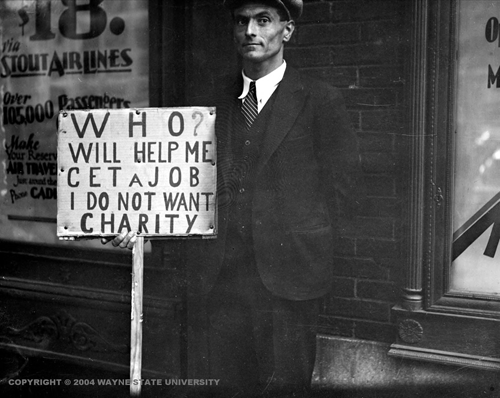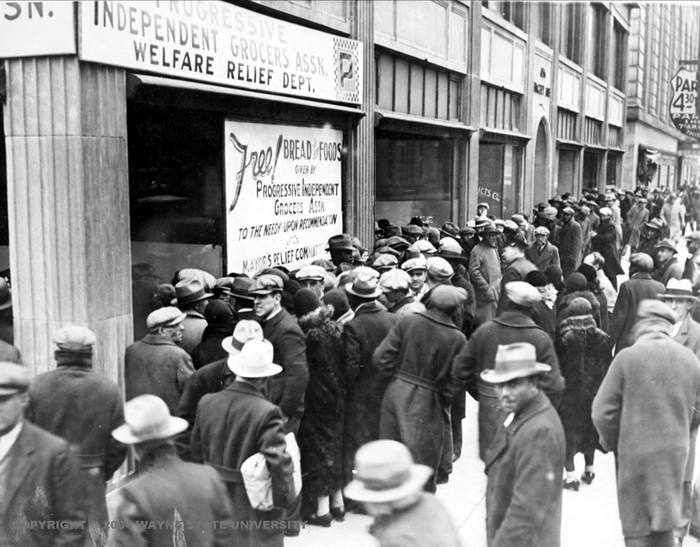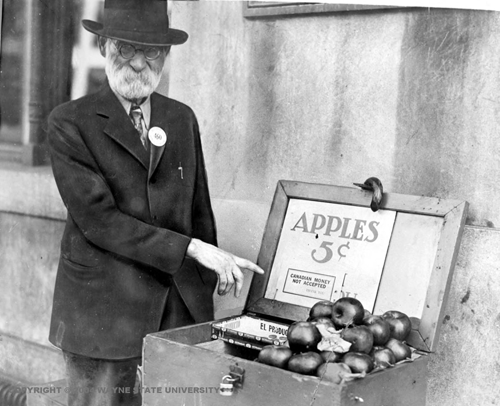The Great Depression
The Great Depression was the worst and longest economic collapse in the history of the modern industrial world, lasting from the end of 1929 until the early 1940s. It began in the United States with the crash of the stock market in October, 1929, but quickly spread throughout the countries of the industrialized world, which in the 20th century had become economically interdependent. As the production and sale of goods declined rapidly, unemployment rose sharply. Businesses and banks closed; many people lost their homes and savings; and in the absence of government welfare programs to help those in need, numerous Americans depended on charity to survive. In 1933, at the Great Depression’s lowest point, more than 15 million Americans--approximately 25% of the nation's workforce--were out of work.
Scenes from the Great Depression in Detroit: An unemployed man seeking work (top); a crowd gathers to receive free food from the Progressive Independent Grocers Association (middle); an unemployed man selling apples on the street, a common sight in cities (bottom).


